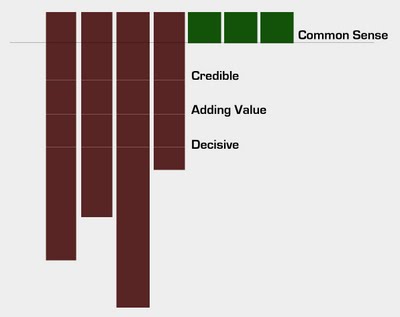I like to be busy. And I usually quite enjoy being too busy.
I was once given some very wise words. You should never say you were too busy to do something. Instead you should just say that you were doing something else more important. Being “too busy” sort of implies that you are perhaps a little out of control rather than aware of the all the necessary work and have consciously decided not to do certain things. Obviously, telling someone you’re too busy is often much easier than saying you won’t do something because it isn’t important enough but, well, the truth will out.
You naturally develop techniques for coping with being “too busy”. I wondered if there was any way you could explain and quantify the issues and solutions surrounding the ever-present spectre of busy-ness.
None of this thinking, I would say, is fully formed but I’ll see where it goes as I type.
The key to coping with being very/too busy is being able to deal with multiple things in parallel and be able to successfully context switch between them on demand. I’m thinking mainly of management positions, but it could apply equally anywhere. As a management role gets more senior, the more context switching into little hyper-detail mini-universes is required.
Too Much
Let’s assume there is just too much to do and you’re not going to get it all done. In fact, let’s go further and say there is it very likely you’re going to fail to do a lot of it. The first thing to realise is that you have to define success differently. Success is now defined by how well you control the failure.
The First Cut
There is an immediate categorisation required. You have a list of things to be done and there are 3 main categories. Things you’re going to do, things you’ll get someone else to do and things you’re going to ignore entirely (at least for now, maybe forever ).
Ignoring something isn’t an entirely negative approach. The initial true priority of something isn’t always obvious. People after for things will usually misrepresent to their own ends. Ignoring allows the task to find it’s natural home. There is a retry loop and if the volume increases as it goes round the loop then you can think about reacting to it.
The fundamental rule is that being busy should never generate an absolute “no“. If it is something you or yours should be doing then you have to take it on and deliver based on priorities. Straight “no I’m too busy” forces people to go somewhere else, usually the wrong place, and things generally get worse from that point.
Catch it, Kill It, Bin It
As you dip into each area you are required to be ( in this order, you may not need them all ) :
- credible
- adding value
- decisive
- dealt with
- ducked
- delayed
- delegated
The key skill in this decision when things are thrown at you fast is Context Switching. If you’re going to decide quickly, you’re going to have to get your head in the game quickly.
Sometimes context switching can be easy. You can be solving partial differentiation equations and be interrupted by a kid asking if they can stick their fingers in a socket and know immediately what to do without much thought. Context switching to the obvious, using up your free common sense is fine.
To be a real context switching genius it does help to be quite bright generally but having help is handy too. I once saw a great example of this with Indian billionaire Mukesh Ambani (you can read the whole mad tale in this post). He was meeting a Japanese professor about a fairly random technical subject. He got a 5 minute briefing from a collection of minions and was startingly credible for the whole chat.
Here’s a picture as a vague attempt to try and visualise what I’m on about (and, at the same time make things needlessly complicated, as is my wont). Imagine each ‘vertical’ is a subject area/issue/whatever. The distance down into the subject is how much knowledge you need to be credible/value adding/decisive etc. The good news is that you, hopefully, get common sense for free in each area. For common sense, you could substitute experience and, therefore, as time goes by, you should get more of this. The best news is that, as you increase the green bits, you should be able to be useful with stuff you know nothing about with experience/common sense alone. Good managers can do this. Turn up cold, listen, advise, from nowhere. You see, you can skip the specific credibility of a given subject area just by being all round wise, you can even add value that way.

Trouble is, for this model to work for you, you need to be self-aware. You need to know what you don’t know. Many don’t. Many poor managers will assume they know stuff or assume they have to make it seem like they do so will leap in cold to things that they have no appropriate knowledge of and, well, muck things up.
If you can assess where you are on this graph quickly you can assess which of deal, duck, delay or delegate you should choose. If you don’t know enough to be credible. Shut up. That simple. If you don’t know enough to know you are making the right decision, don’t just make any decision because you feel you have to.




Need to practice a lot